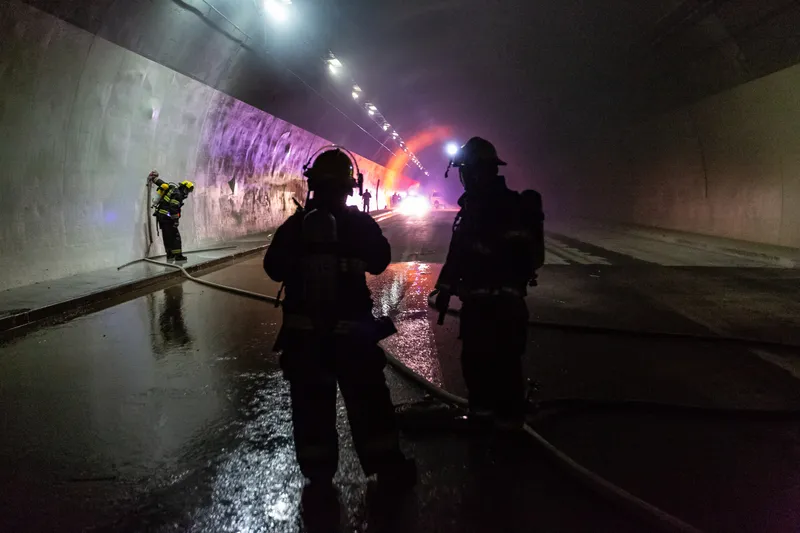Once operational, the system will use thermal cameras, warning signs for wrong-way drivers and advisories for right-way drivers along a 15-mile stretch of I-17. In addition, the system will automatically focus highway cameras on the wrong-way vehicle and send automated alerts to the Highway Patrol.
On freeway ramps, wrong-way vehicles will trigger alerts, including illuminated signs with flashing lights, aimed at getting drivers to stop. The system will immediately warn other drivers through overhead message boards as well as law enforcement. Cameras in the area will automatically turn to face the wrong-way vehicle so traffic operators can better track it.
On the freeway, thermal cameras placed at one-mile intervals will signal when a wrong-way vehicle passes so State Troopers plan their response and get out in front of the wrong-way driver, providing a faster response.
Construction of the thermal camera pilot system is expected to begin this autumn and will take around seven months to complete.
ADOT advances wrong-way detection with US$3.7 million project
A US$3.7 million project by Arizona Department of Transportation (ADOT) to construct a thermal detection system to detect wrong-way vehicles and alert other drivers and law enforcement has been approved by the State Transportation Board. Once operational, the system will use thermal cameras, warning signs for wrong-way drivers and advisories for right-way drivers along a 15-mile stretch of I-17. In addition, the system will automatically focus highway cameras on the wrong-way vehicle and send automated aler
June 14, 2017
Read time: 2 mins
A US$3.7 million project by 6576 Arizona Department of Transportation (ADOT) to construct a thermal detection system to detect wrong-way vehicles and alert other drivers and law enforcement has been approved by the State Transportation Board.










